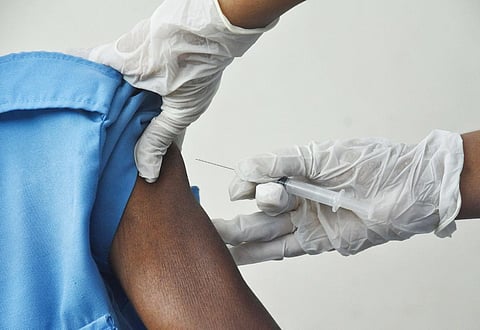

BENGALURU: With just two days left for the start of registrations for COVID-19 vaccinations for people above 60 and those above 45 with comorbidities, experts point out some of the challenges and pre-requisites the state faces before starting the process. Data regarding comorbidities isn’t readily available for most people, they noted.
Dr Giridhara R Babu, senior epidemiologist and public health expert, who is also a member of the Covid Technical Advisory Committee, worries about getting reliable information on who has what comorbidity. "A lot of time has been spent on deciding which are the comorbidities but very little preparation has happened in the field to identify the people with comorbidities,” he said.
Dr Babu says most Indians don't even know whether they have any comorbidity like diabetes for example. "I can tell you from our experience, a study done by Prof GVS Murthy and others found that nearly 50 percent of the people have turned blind by the time they come to know they have type 2 diabetes mellitus.”
Public health experts believe that comprehensive surveys to screen people with comorbidities should have guided the micro-planning for vaccination sessions.
“In the absence of detailed data, the coverage of persons with comorbidities is going to be incomplete. The list of elderly might be available from the voter list but phone numbers will not be available. I am not sure how they are going to integrate this data with the CoWin app,” Dr Babu said.
However, Dr Manjunath C N, Director of Jayadeva Institute of Cardiovascular Diseases, says, "There is data on non-communicable diseases available with the central government. They could make use of that.”
While identification of beneficiaries is going to be the most important challenge, Dr Ananth Bhan, bio-ethics researcher, says registrations will start from March 1 to ensure that any platform related issues are minimized. Working with a diversity of vaccine delivery points and keeping track of adverse events are the other challenges states will have to address.
While some of the experts are batting for walk-in vaccinations and doing away with pre-registrations, Dr Bhan argues, “We do need a platform to collate all information -- Cowin has already been used for the last few weeks and any issues with the platform should have been identified and fixed in advance of further expansion of beneficiaries.”
Dr Manjunath said that availability of vaccines will also be a challenge. “Another issue is the availability of vaccines as per the demand. Now that private players will also be engaged, pricing might be another issue which may delay the process of beginning the vaccination,” he said.
However, Dr Bhan said that the Union health ministry should outline guidelines as soon as possible on who qualifies for the criteria of the comorbidity list and what documentation is needed.
Earlier, for vaccines like polio, measles, rubella etc, India did a bottom up approach with micro planning and door to door survey and using it for vaccination in a decentralised mode but here for COVID-19 we are using a top down approach relying on an untested, unreliable software, explains Dr Babu.
Experts believe that leaving people out of the vaccination because they are not diagnosed or because they don't have access to the health system or don't have means to register will worsen the inequities. The number of people who have a diagnosis and can get a medical certificate to be included in the vaccine list is a tiny portion of the actual number of persons with comorbidities.